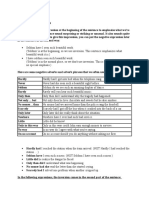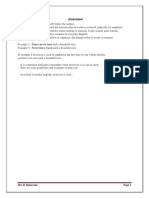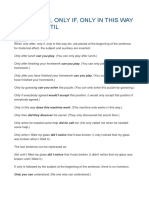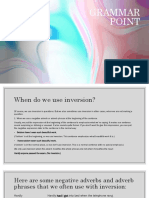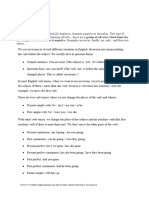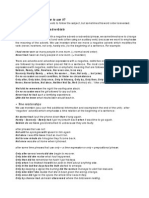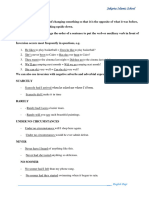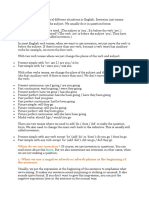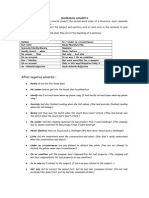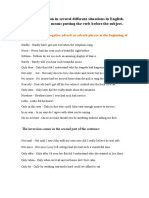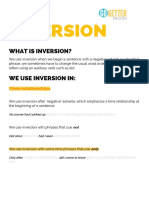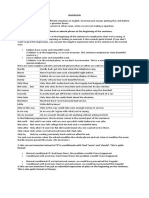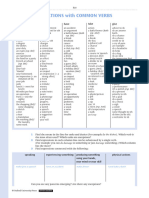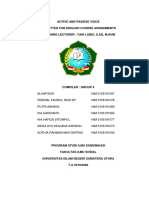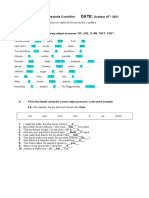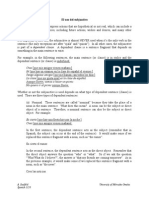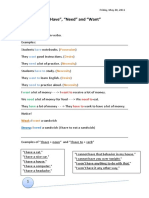0% found this document useful (0 votes)
47 views8 pagesInversion
This document outlines a lesson on inversion in English, focusing on its definition, usage, and structure for creating emphasis or a dramatic tone. It provides examples of phrases that trigger inversion, rules for different tenses, and practice exercises for students. The lesson aims to enhance students' fluency and writing skills through the use of inversion in various contexts.
Uploaded by
Rocío Sáez MonjeCopyright
© © All Rights Reserved
We take content rights seriously. If you suspect this is your content, claim it here.
Available Formats
Download as ODT, PDF, TXT or read online on Scribd
0% found this document useful (0 votes)
47 views8 pagesInversion
This document outlines a lesson on inversion in English, focusing on its definition, usage, and structure for creating emphasis or a dramatic tone. It provides examples of phrases that trigger inversion, rules for different tenses, and practice exercises for students. The lesson aims to enhance students' fluency and writing skills through the use of inversion in various contexts.
Uploaded by
Rocío Sáez MonjeCopyright
© © All Rights Reserved
We take content rights seriously. If you suspect this is your content, claim it here.
Available Formats
Download as ODT, PDF, TXT or read online on Scribd
/ 8



